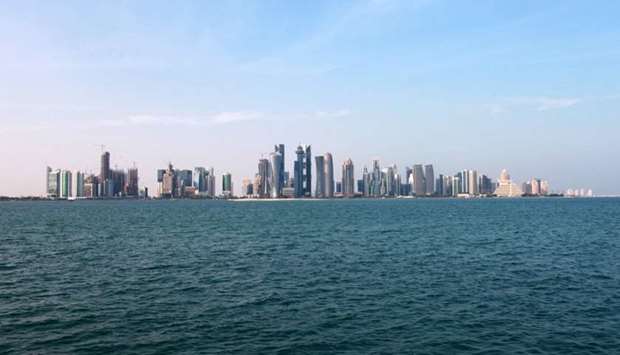Qatar is among the MENA countries "better placed" to accommodate rising deficits, although "vulnerabilities" are on the rise in the region due to lower growth and the sharp decline in oil prices, IMF has said in a report.
Lower growth and the sharp decline in oil prices are putting significant strains on fiscal and external positions in Middle East, North Africa and Pakistan (MENAP) oil exporters. The fiscal deficit for the region is expected to deteriorate from 2.8% of GDP in 2019 to 10% of GDP in 2020, with about two-thirds of this decline (or 4.4% of GDP) resulting from crisis related spending and revenue measures.
Countries with fiscal buffers such as Qatar are better placed to accommodate rising deficits than those with limited space, IMF noted in its recent regional economic outlook update.
Lower projected hydrocarbon revenue will also weigh on the region’s current account balance, which is expected to tip into a deficit of 5.8% of GDP in 2020 from a surplus of 2.7% of GDP in 2019.
In the GCC, the current account will shift from a surplus of 5.6% of GDP in 2019 to a deficit of 3.1% of GDP this year, it said.
“The combination of weaker fiscal and external balances leaves MENAP oil exporters more vulnerable to downside risks, with limited space to combat the effects of the coronavirus,” IMF noted.
Buffers are depleting but they remain adequate for certain countries in the region. Net debt (gross debt minus government deposits in the banking sector) has turned positive, reflecting increasing liabilities in particular for non-GCC countries in the region.
The net debt for the region will stabilise at about 35% of GDP in 2021, but is expected to rise in the medium term. In some countries, however, gross and net debt will reach much higher levels, reflecting large financing needs.
Notwithstanding some improvement over the past two years, breakeven oil prices (oil prices needed to balance the budget) are much higher than current oil prices in all MENAP oil exporters, exceeding $80 in some countries, the report noted.
Large spending commitments, including public wage bills and pensions in some countries, mounting interest payments, and other non-discretionary spending has left many countries in the region with rigid expenditure patterns and politically challenging policy choices to reduce these, IMF noted.


